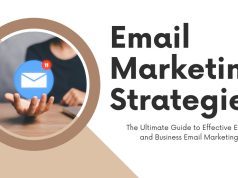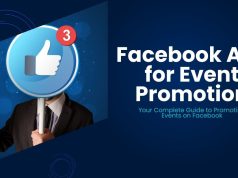Event marketing is one of the top ways to make meaningful brand connections with your audience and drive real business outcomes. But one of the first questions you will have if you are thinking about event marketing is certainly, “How much does it cost?”
Event marketing costs are not monolithic. It could be widely different from event to event and according to numerous other factors such as location of the event, type of event that you’re putting on even your marketing efforts themselves. Knowing what kind of expenses can be thought of as typical States in the range of potential costs facing any unit large or small.
Why Event Marketing Matters
Before we break down costs, it’s worth understanding why businesses consistently allocate substantial budgets for event marketing.
Events present clear opportunities to engage directly with your audience, making them a powerful way to build your brand. Trade shows and product launches, webinars and community gatherings — all kinds of events let companies put their best foot forward. They help to nurture leads, establish relationships and show off offerings.
According to research, 83% of marketers believe event marketing is the most effective channel for achieving business goals. But with effectiveness comes investment. Here’s how to make that investment wisely.
Factors That Influence Event Marketing Costs
There are several factors that can affect your event marketing budget. Below, we explore the most common ones to give you a clear picture of what you might need to consider.
1. Event Type
The type of event you’re hosting has a significant impact on costs. Online webinars, for instance, are often much cheaper to organize than in-person trade shows. A large industry conference with hundreds of attendees and physical booths will also cost more than a small, invite-only product demo.
Here’s a rough comparison of different event types and their average price range:
- Webinars: $500 – $3,000
- Networking Events (small scale): $2,000 – $10,000
- Trade Shows/Expos: $20,000 – $100,000 or more
- Product Launches (medium-large scale): $10,000 – $50,000+
2. Event Venue and Setup
For in-person events, venue rental is often the single biggest line item on your budget. Costs vary depending on the size, location, and prestige of the venue. A sleek corporate event in a downtown area might set you back $10,000, while a community-centric event in a local park might cost just a few hundred dollars.
Don’t forget to account for setup expenses, like furniture rentals, decor, lighting, and audio-visual (AV) equipment. Here’s a quick breakdown:
- Small Venues (up to 100 attendees) – $500 to $5,000
- Large Venues (100+ attendees) – $5,000 to $50,000+
- AV Services – $1,000 to $10,000
3. Marketing and Promotion
No matter how wonderful your event idea is, it won’t be effective unless people show up. That means you need a strong marketing and promotion strategy. Event promotion costs typically make up 10-20% of the total event budget, including online ads, email campaigns, social media posts, influencer collaborations, and printed materials.
Some examples of marketing costs include:
- Digital Ads (Google, Facebook, LinkedIn): $500 – $10,000
- Email Marketing Tools (e.g., Mailchimp): $20 – $500/month
- Social Media Staffing (paid content creation/management): $1,000 – $5,000
4. Speakers and Entertainment
Having inspiring speakers or engaging entertainment can elevate your event, but these often come with a price tag. Costs for professional speakers can vary widely depending on their reputation and expertise.
- Local Speaker or Industry Expert – $500 – $2,500
- Renowned Subject-Matter Expert – $5,000 – $25,000
- Celebrity or High-Profile Figure – $20,000 – $100,000+
Entertainment, such as live music or interactive experiences, can range anywhere from $1,000 to $50,000 depending on your vision.
5. Food and Beverages
For in-person events, catering plays a major role in guest experience. Whether it’s light snacks, a buffet, or a formal dinner, food can quickly add up. Typical costs hover around:
- Light Refreshments – $10 – $30 per attendee
- Buffet or Catered Meals – $40 – $100+ per attendee
- Open Bar or Beverage Service – $20 – $50 per attendee
6. Technology Costs
Virtual events, hybrid events, and even in-person meetups require technology to run smoothly. You may need live-streaming platforms, apps for attendee engagement, and registration tools. Here are some common tech expenditures:
- Event Platforms (Zoom, Hopin, etc.) – $500 – $10,000+
- Event Registration Software – $50 – $5,000
- Event Apps (for engagement and networking) – $500 – $5,000
How to Create a Budget-Friendly Event Marketing Plan
Now that you know the potential costs, here’s how to stretch your dollars further without sacrificing quality.
Prioritize Your Goals
Identify your event’s key objectives. Are you looking to generate leads, build brand awareness, or strengthen customer relationships? Allocate your budget to areas that directly contribute to achieving these goals.
Leverage Partnerships
Collaborate with sponsors or industry partners to distribute costs. Many businesses are willing to contribute financially or in-kind (e.g., providing gifts or services) in exchange for exposure during the event.
Go Digital for Savings
If your budget is tight, consider virtual events. They eliminate venue, catering, and travel costs while still offering the chance for attendee engagement.
Use Data to Optimize
Leverage analytics from past events to understand what worked and what didn’t. Focus on strategies that have a proven ROI.
Is Event Marketing Worth the Investment?
There are real opportunities in event marketing for face-to-face interaction with that audience. Most of those interactions are impossible to measure in terms of their value: but these indirect gains far exceed any initial costs.
Even after accounting for the costs, event marketing’s benefits still outweigh its disadvantages: greater customer commitment, longer-term brand awareness and loyalty and so forth.









